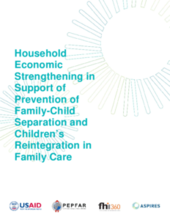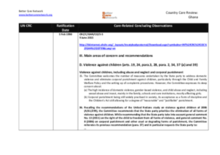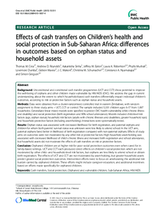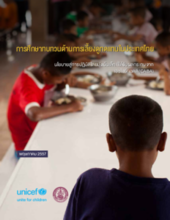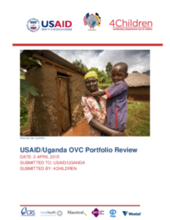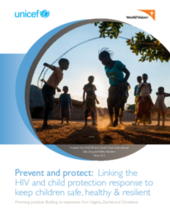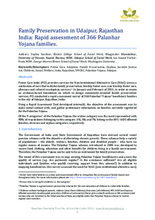Displaying 121 - 130 of 412
This study was designed to evaluate the effectiveness of a family-level economic strengthening intervention with regard to school attendance, school grades, and self-esteem in AIDS-orphaned adolescents aged 12-16 years from 10 public rural primary schools in southern Uganda.
This paper presents an overview of learning related to the prevention of family-child separation, the reintegration of children into family care, and economic interventions that support both.
This article reports on the Western Uganda Bantwana Program, which worked with more than 1,000 HIV/AIDS-affected families with the goals of improving socioeconomic status, psychosocial functioning, and educational participation.
This country care review includes the care related Concluding Observations adopted by the Committee on the Rights of the Child.
This study, conducted in eastern Zimbabwe, addresses the gap in current understanding about the extent to which household-based cash transfers differentially impact individual children’s outcomes, according to risk or protective factors such as orphan status and household assets.
The purpose of this research was to capture more accurate and detailed information regarding children in various forms of alternative care in Thailand, as well as the legal, policy, management and oversight environment surrounding them in order to plan and programme more strategically in the area of alternative care, and simultaneously contribute to the global evidence base for international findings and recommendations on alternative care.
The purpose of this research was to capture more accurate and detailed information regarding children in various forms of alternative care in Thailand.
This portfolio review of OVC programming in Uganda focuses on several priority issues, including: (1) targeting case management and referral mechanisms; (2) graduation; (3) links with HIV/AIDS care and treatment partners; and (4) overall coordination amongst implementing partners.
This report from UNICEF and World Vision International documents country level approaches that respond to HIV and child protection challenges facing children and adolescents by linking both those responses.
In January and February of 2015, in order to create an evidence-based foundation on which to design community-oriented family preservation services, FCI conducted a rapid assessment survey of 366 Palanhar Yojana beneficiary families in the city of Udaipur, Rajasthan, India.

